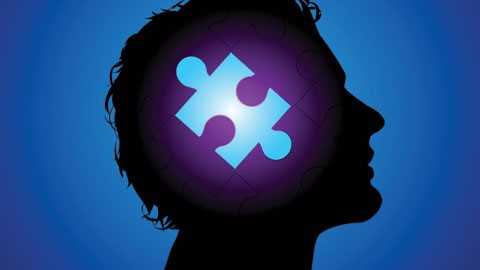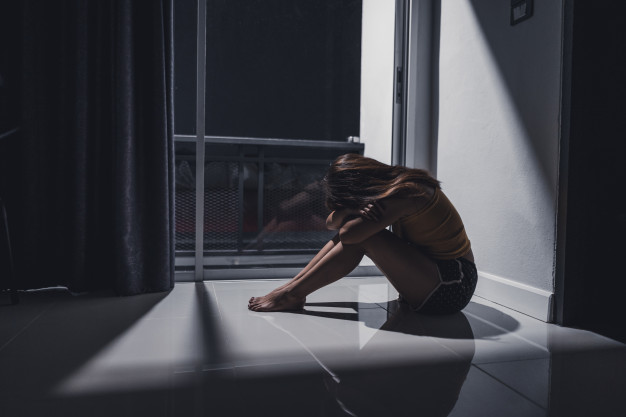The increasing competitivity in today’s times has instilled several complexes in every individual. Counterfeiting relations to humanity and the constant search for materialistic pleasures has ripped humanity apart. These devastating situations have lead to rampant mental issues. According to research 1 in every 6 people experience a mental health problem of some sort, these include depression and anxiety. 1 in 5 have suicidal thoughts, and 1 in 15 have actually attempted suicide.
Many websites have sprung up, and there have been deluges of smartphone health apps. All to provide online help and therapy. But the question is how much these apps are helpful? Studies show that these apps, including the ones endorsed by NHS, are clinically unproven and might have adverse health effects instead of helping you out.

These mental health apps have no strong ground, scientific credibility, and clinical effectiveness. They result in over-reliance and apprehension. People start linking up themselves to cases entirely different and rather develop an obsession for self-diagnosis.
Mental health apps have burgeoned at a time when psychological services are struggling with increasing demand but fewer resources.

MENTAL HEALTH APPS: THE KNIGHTS IN SHINING ARMOUR
Patients who encounter waiting lists or are too shy to meet someone in person and pour out their heart, look for alternative means- the mental health apps. Mental health apps are risky since if they are ineffective compared to your intensity of the problem, you might end up concluding that you tried everything and might give up on yourself. Some health apps are beneficial. They have their advantages since they guide you without you having to leave the comfort of your space. Also, if you do not want to face anyone initially, you can slowly begin to heal yourself through app guidance. Some physicians have recommended their patients some apps, but the question that still haunts is, are these apps really useful?
We have justified reasons to doubt their authenticity. Let’s have a look at some of the legitimate concerns about these apps and what will future unfold for us.
SHOULD THESE APPS BE TRUSTED
Whenever a patient is recommended tests or any procedure, it has solid ground and clinical based evidence. Mobile apps, on the other hand, can enlighten patients and track down signs, medical adherence, and provide with data as they are expected to do. Unfortunately, this poses serious problems, for instance, the blood pressure level that it sometimes shows is not accurate. Upon contacting the app developer, it was revealed that the app was still in testing and that it was built just for entertainment purpose. It doesn’t matter if you are an erudite doctor or a patient, mental health apps remain somewhat of a mystery for you. It is a wide ocean, and it is extremely hard to cast your net on the precise point.
THE TYPES OF MENTAL HEALTH APPS OUT THERE
With such a great variety of mental health app stock, the vast array of species poses a significant problem. Some of these app ‘species’ have overlapping capabilities, the one which best suits your needs is difficult to find.
Let us begin with categorizing all of these apps. The categories are as follows:
- Clinical guidance apps
These apps allow the doctors to check EHRS or access the lab results concluded during appointments. You can also view images and other details of the patient which then can be used at the next meeting.
- Monitoring apps
These apps are quite at their peak. Doctors can easily keep an eye on the patient and look for symptoms in their behavior. You can send your test results to the doctor on a monthly basis to check your progress.
- Reminder apps
If you forget to take your medicines or miss on your appointments, these reminder apps are somewhat of a lifesaver for you. It will ensure you are reminded of your next scheduled meeting or test.
- Reference/ database apps
Probably an archaical app category, but aids doctors in looking up for drug dosage. It replaces the older database efficiently and takes the spot among the large reference tomes.
- Healthy life apps
This app revolves around dieting and fitness strategies. The patients mostly employ this kind of apps than doctors.
- Communication apps
These are for the intercommunication of doctors for better patient care. By using this app, a doctor can send over the history of a patient to another doctor safely and securely. The work pattern also improves this way.
- Facility information apps
Many hospitals have these apps to provide the patient and the family members with the particulars of the hospital. The services, facilities, and amenities it provides. The map it includes has the details of the locations, surrounding and the availability of the doctors.
- Patient Portal apps
These another rampant app gives access to the patients of their electronic records. It is a great way for the improvisation of communication between doctors and patients.
- Specialty apps
As the name suggests, it is for the specialists; they provide you with vision screening test tools or anatomical models.
- Super apps
Another new exciting app, which is not out yet. But, the name says it all! It houses something special. The analyzation and access of information from several connected health devices.
WHO USES HEALTH APPS AND HOW
You might have jumped on the conclusion that mostly teenagers hook up to such apps. You will be amazed to know that the answer is no!
WOMEN ABOVE 25
According to the statistics, it’s mostly the females above the age of 25 who look up and use such apps. They target mainly the health and fitness apps though.
50-70 YEARS OLD PEOPLE
The 50-70 years old have acquired the habit of searching for apps that can check up on their diet and give them a count of the calories. Also, communicating with their doctors without having to leave their houses. That is why the app developers have taken it upon themselves to produce apps which the older generation finds easy to use.
DOCTORS AND THE HEALTH APPS
With the benefits mentioned above, the question arises why the doctors do not recommend these apps? The logistical reasons they have come up with are:
- Lack of knowledge on the doctors part. They aren’t aware of the functionality and benefits of these apps. The reason is that only 15% of the apps are marketed towards physicians.
- The data is not regularly regulated. Some doctors hesitate in suggesting any app due to the lack of studies on the effects the apps have on the health of the patients.
- The influx of patient data. It is also an issue to be worried about because of which doctors do not feel comfortable mentioning or suggesting the apps.
Doctors are gradually moving towards these apps, and it will take time before they completely trust them.
DO THESE APPS HAVE A POSITIVE EFFECT ON THE PATIENTS?
It is a rather debatable question, which the doctors and patients are asking alike. The only satisfying answer would be to say that it is too early to jump up on any conclusion. So far no data has been collected that would suggest positive or a negative impact on the mental health apps. It concerns and is risky because of the lack of medical authority and the threat to the patient’s privacy. Bad advice or wrong diagnosis are worrying. Since these apps are developed by people, who lack medical knowledge. Some apps have not even been to clinical trials. These pose grave concern for those who rely heavily on them.
For these apps to be risk-free, it is important to set specific standards for running them. By which both health and privacy are in safe hands!


